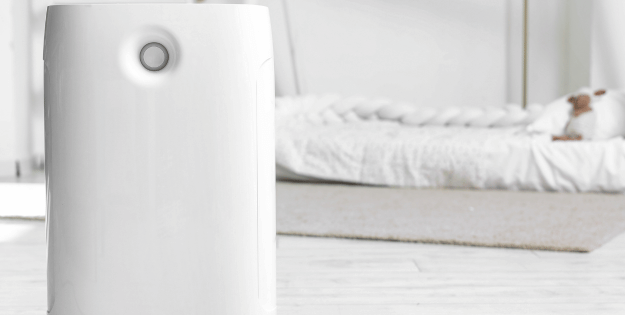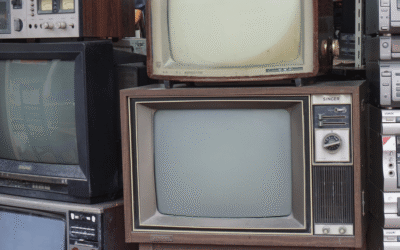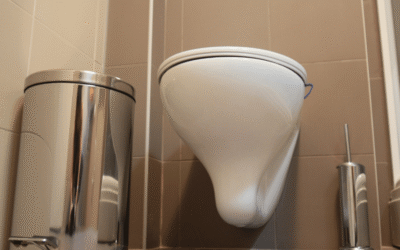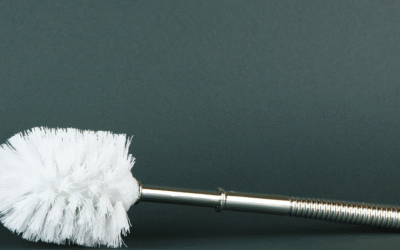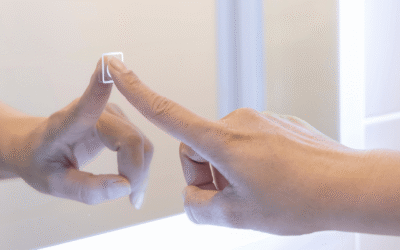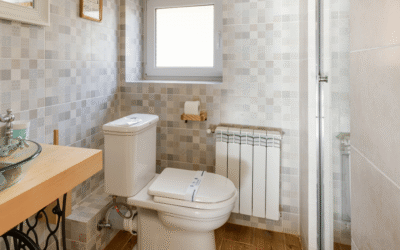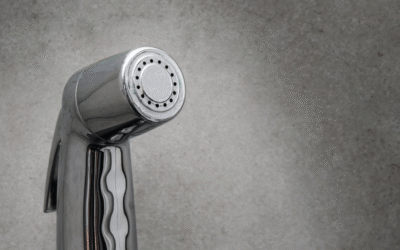In an age where air quality is increasingly compromised, finding the best air purifier has become essential for maintaining a healthy indoor environment. With pollutants, allergens, and harmful particles lurking in the air, these devices offer a lifeline, ensuring cleaner air for homes and offices alike. For those on a budget, choosing an affordable air purifier can provide effective air cleaning without breaking the bank.
Choosing the right air purifier can be overwhelming, given the multitude of options available. From HEPA filters to activated carbon technology, understanding the features that matter most can make all the difference. Many modern air purifiers come equipped with an air quality indicator, which is crucial for monitoring real-time air quality and adjusting settings accordingly. This guide explores the top contenders in the market, helping readers make informed decisions that cater to their specific needs.
- Importance of Air Purifiers: Air purifiers are essential for improving indoor air quality by removing pollutants, allergens, and harmful particles from the air.
- Key Features: Look for air purifiers with HEPA filters that capture 99.97% of particles and activated carbon technology for odour removal to ensure effective air cleaning.
- Room Size Matters: Select an air purifier that matches the size of your room for optimal performance and air coverage.
- Noise and Energy Efficiency: Consider noise levels and energy efficiency when choosing an air purifier to ensure a quiet operation and cost-effective usage.
- Maintenance is Crucial: Regular cleaning and replacement of filters are necessary to maintain the air purifier’s effectiveness and extend its lifespan.
- Avoid Common Misconceptions: Understand that air purifiers do not eliminate all pollutants and are not one-size-fits-all; proper unit selection and maintenance are key for best results.
Top Air Purifier
Best Air Purifier: An Overview
Selecting the best air purifier involves understanding key features that contribute to effective air cleaning. HEPA filters capture 99.97% of particles as small as 0.3 microns, making them crucial for trapping allergens like dust, pollen, and pet dander. Activated carbon technology, particularly the activated carbon filter, removes unpleasant odors and harmful gases, enhancing indoor air quality.
Air purifiers vary in terms of room coverage, noise levels, and filter replacement frequency. An air quality sensor allows the device to adjust settings autonomously based on detected air quality levels, enhancing efficiency and user convenience. Evaluating these factors ensures the chosen device meets specific needs. Understanding these elements can simplify the decision-making process, leading to a more informed choice in selecting the best air purifier for cleaner, healthier air.
Benefits of Using an Air Purifier
Improved Air Quality
One of the primary benefits of using an air purifier is improved air quality. By removing airborne particles and pollutants, air purifiers can significantly reduce the risk of respiratory problems and allergies. They can also help alleviate symptoms of hay fever and asthma by tackling airborne allergens.
Additional Benefits
In addition to improving air quality, air purifiers can also provide several other benefits. Some air purifiers can remove odors and double as a fan to keep you cool in the summer. Many air purifiers have a dedicated quiet/night mode for noise-sensitive users, making them ideal for bedrooms and living rooms. Furthermore, some air purifiers come with advanced features such as air monitoring and Wi-Fi connectivity, allowing you to track and control the air quality in your home remotely.
Factors to Consider When Choosing an Air Purifier
Selecting the best air purifier involves several key factors that affect performance, including the importance of balancing price with features when choosing a budget air purifier. Understanding these elements leads to better decisions and improved indoor air quality.
When comparing other air purifiers, it’s essential to evaluate their performance and features against top models like the Dyson Hot+Cool and Medify MA-50. These comparisons can highlight differences in filtration efficiency, room coverage, and price, helping you find the best value and functionality for your needs.
Filter Types
Filters significantly influence air purifier efficiency. HEPA filters trap 99.97% of particles, while activated carbon filters reduce odours and volatile organic compounds. Choosing the right filter type ensures effective contaminant removal.
Room Size and Coverage
Room size dictates the air purifier’s coverage area. Models often specify square footage to indicate suitability for different spaces. Selecting an air purifier that matches the room size maximises cleaning efficiency.
Noise Levels
Noise levels vary between air purifiers. Many units provide specifications in decibels, indicating operational sound. Quieter models suit bedrooms or offices, whereas noisier types may be acceptable in larger living spaces.
Energy Efficiency
Energy efficiency is crucial for cost-effective operation. Air purifiers with Energy Star ratings indicate lower energy consumption. Choosing energy-efficient models saves money and reduces environmental impact over time.
Maintenance and Usage Tips
Maintaining proper usage of a best air purifier maximises its efficiency and lifespan. Replacement filters play a crucial role in this, as their longevity and cost can significantly impact overall maintenance expenses. Regularly adhering to maintenance practices ensures optimal air quality and performance.
How to Set Up Your Air Purifier
Position the air purifier centrally in the room for efficient airflow. Ensure it’s away from furniture and walls to prevent obstruction. Choose a room with consistent air circulation for the best results.
Cleaning and Maintaining Filters
Clean or replace filters regularly to sustain the best air purifier’s effectiveness. Follow manufacturer guidelines for specific timings based on usage. Monitoring filter status helps maintain optimal performance, ensuring clean air delivery.
Common Misconceptions About Air Purifiers
Many people believe air purifiers eliminate all indoor air pollutants. While efficient, most air purifiers are particularly effective at removing larger airborne particles like dust and pollen, but even the best air purifier cannot remove every single contaminant. Individuals often think air purifiers are noisy; however, many modern models operate quietly, providing a peaceful environment. Another misconception involves the size of the unit; some may think small purifiers suffice for large rooms. Each air purifier has a specified coverage area, so selecting one that matches room size is crucial for optimal effectiveness. Some users assume once they buy an air purifier, no further maintenance is needed. Regular filter cleaning or replacement is essential to ensure sustained performance and clean air delivery.
Choosing the right air purifier can significantly enhance indoor air quality and overall wellbeing. By understanding the features that matter most and dispelling common myths, individuals can make informed decisions tailored to their unique needs. Regular maintenance and proper usage ensure that these devices perform at their best, providing cleaner air for healthier living environments. Investing in a quality air purifier is a step towards a fresher home and improved health.
What are air purifiers used for?
Air purifiers are designed for air purifying, effectively removing pollutants and allergens from indoor air to improve overall air quality. They target dust, pollen, smoke, pet dander, and other harmful particles to create a cleaner and healthier living environment.
How do I choose the right air purifier?
When selecting an air purifier, consider factors like room size, filter type (HEPA is recommended), noise level, and features such as air quality sensors. Ensure the unit is suitable for your specific needs and space to maximise its effectiveness.
Do air purifiers reduce allergies?
Yes, air purifiers can significantly reduce allergy symptoms by removing airborne allergens such as pollen, dust mites, and pet dander. This can lead to improved breathing and comfort for allergy sufferers.
How often should I replace air purifier filters?
Filter replacement frequency varies by model and usage, but most HEPA filters should be replaced every 6 to 12 months. Always refer to the manufacturer’s instructions to ensure optimal performance.
Can air purifiers remove smoke odours?
A good air purifier is highly effective in removing smoke odors, significantly improving indoor air quality. While air purifiers can reduce smoke particles from the air, they may not eliminate all smoke odours entirely. Models with activated carbon filters are particularly effective at absorbing and neutralising harmful smells.
Are air purifiers loud?
Noise levels vary between models. Many modern air purifiers feature quiet operations and different speed settings, making them suitable for use in bedrooms and living areas without causing significant disruption.
How much energy do air purifiers use?
Air purifiers typically consume between 30 to 200 watts, depending on the model and settings. Most units are energy-efficient and designed to operate continuously without significantly increasing your electricity costs.
Do air purifiers help with pet dander?
Yes, air purifiers are effective in reducing pet dander, which can be a major allergen for many individuals. Maintaining good air quality is crucial, and a good air purifier can help achieve this by effectively removing pet dander. A unit with a HEPA filter can trap small particles, helping to alleviate allergy symptoms related to pets.

